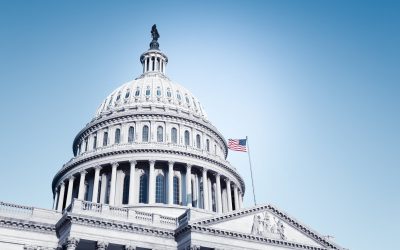
The 2022 economic climate has been bumpy for most and, in some cases, even bumpier for retirees. Americans and the world at large dealt with the economic ramifications of the Russia-Ukraine war, post-pandemic industrial effects, and rising inflation and interest rates. As the year ends, it’s important to understand how these economic factors may have affected your finances as a retiree.
- Inflation Pinched Pockets
Between 1991 and 2021, annual inflation averaged 2.5%, close to the Federal Reserve’s desired 2% target, which many believe to indicate a healthy economy.[1] However, in 2022, this number spiked to 9.1% due to increased costs of necessities like food, energy, and gas.[2] With higher prices in consumer goods, retirees may have had to reevaluate their withdrawals and spending on retirement accounts as their income became strained. Having to cover costs of immediate needs perhaps prompted reduced higher withdrawals from retirement accounts and tapping into savings just to keep the same standard of living. Suppose you had to take any of these measures to adjust for inflation. In that case, it may be essential to review your financial position as these changes possibly affected how you cater to your short and longer-term retirement needs.
- Interest Rate Hikes Hit Retirement Accounts
To combat high inflation, the Federal Reserve increased borrowing costs six times this year. Hikes in interest rates incited fears of a recession, causing many investors to pull out of the market, dropping the value of stocks and bonds. If you’re like most, you held some declining stocks and bonds in your IRAs, 401(k)s, and other retirement accounts. In 2022 alone, the value of an average 401(k) dropped by 25%, and the value of pension funds declined by 15%.[3] These decreases affected retirees who were withdrawing from these accounts as they were selling their assets cheaper than anticipated, some even incurring losses. Additionally, coupled with a high inflation period, returns on retirement funds and investments also slowed down. This mostly affected new retirees, as withdrawing from a declining fund can increase risks of early fund depletion.[4]
Apart from affecting your retirement funds now, these factors could also alter your outlook on your future. Some may be concerned that they may not have what they need to avoid outliving their savings in retirement. Others may not know how best to adjust for inflation or what further strategies to employ to enable a comfortable retired life. These concerns are best raised with a financial professional. Talk to us today to receive guidance that empowers you to get into 2023 with a solid financial plan.
[2] https://www.forbes.com/sites/chriscarosa/2022/07/18/determining-how-todays-inflation-impacts-your-retirement-ongoing-needs-tomorrow/?sh=4b715ae40b55
[3] https://www.benefitspro.com/2022/10/18/the-average-401k-plan-is-down-34000-or-25-in-2022/
[4] https://www.cnbc.com/2022/05/24/why-2022-has-been-a-dangerous-time-to-retire-and-what-to-do-about-it.html



